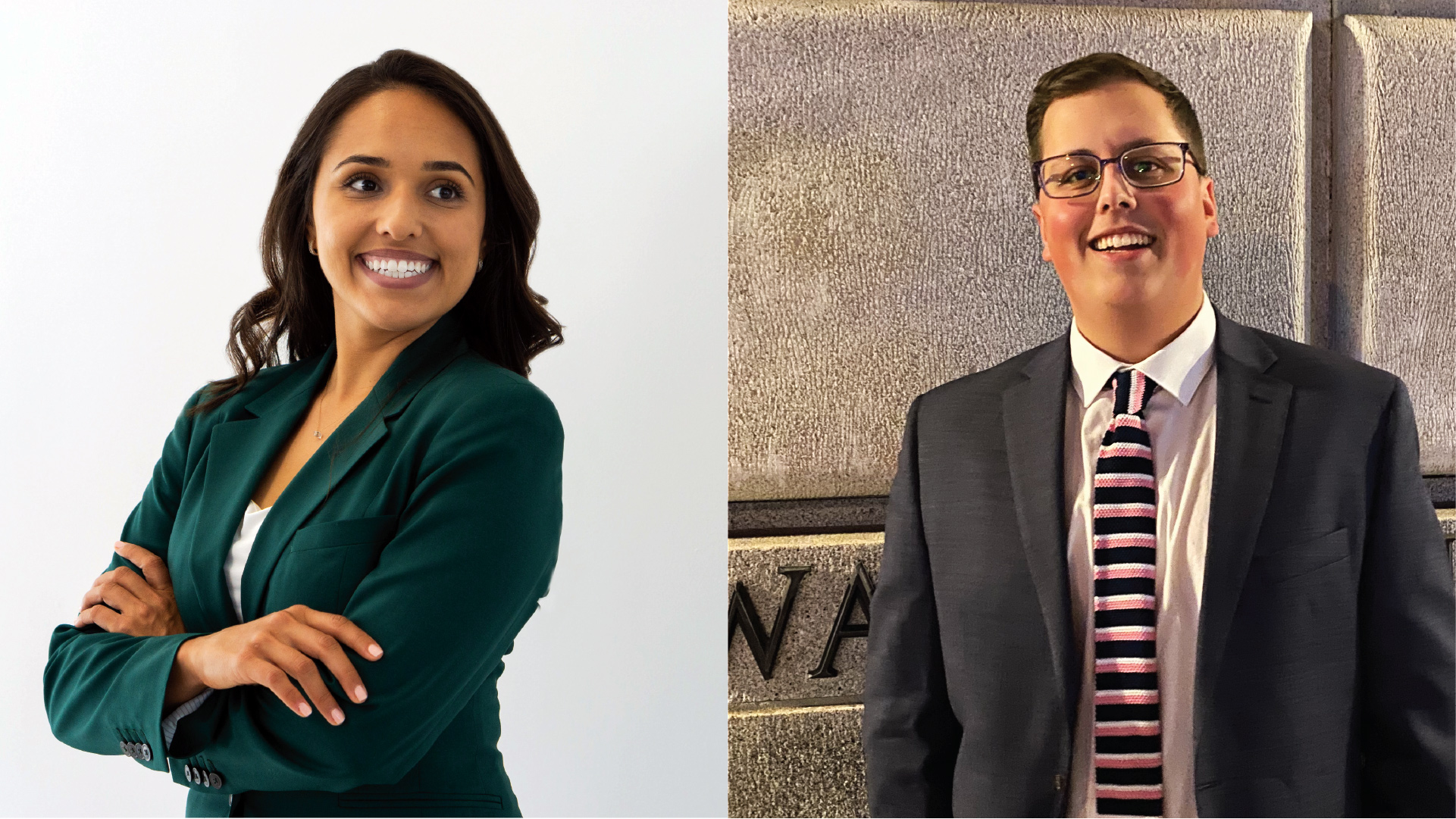Two College Alumni Elected to Hometown School Boards Hope to Make Education More Equitable
Nicolo Orozco (C’19) and Luisa Santos (C’14) were recently elected to the school boards in their hometowns. The alumni are now working to help their communities by applying the skills they learned at Georgetown.
Contributing to Communities
Before she was accepted into the College, Santos grew up in Miami-Dade, Florida where she became a proud product of the public schools there. The alumna says that as an undocumented student, she witnessed first-hand that the needs of many classmates were not being met by the school system and she knew a change was necessary.
After arriving at Georgetown, Santos decided to minor in Education, Inquiry and Justice in addition to her political economy major. She said that this experience along with her work for the undersecretary of education in Washington, DC helped her understand education at the national level to better help her local community.
Inspired by what she had learned, Santos moved back to Miami-Dade after graduation where she led entrepreneurship training and joined an advocacy group for the board of education locally before eventually running for a seat on the school board herself this year.
“Being by and from the community allows me to ensure that the policies enacted are actually to the benefit of my community,” says Santos. “Elected officials can solve problems that the people face and so the significance of serving the schools that I went to and having knowledge of what the community needs is beneficial. You can see the immediate effect on people’s lives.”
Orozco also grew up in the community where he now serves as a school board member. The alumnus has been active in the Yuba City, California school system since he served as a student worker in his high school cafeteria.
A psychology major who also minored in Education, Inquiry and Justice, Orozco worked in the DC public school system throughout the academic year and spent his summer breaks working in Yuba City schools. The differences between the two education systems motivated Orozco to pursue a career helping to improve Yuba City schools after he graduated from Georgetown.
“In DC public schools when students with disabilities were promised services, they received those services, which is not always the case in Yuba City,” he explains. “Working as a pareducator, with the distinct qualifications I had earned at Georgetown, I was able to more concretely advocate for students and explain their needs, but I still faced systemic obstacles fighting for equal access for students with disabilities in the system. I have always been passionate about serving the students I worked with and thought I could serve more effectively on the school board than I could as an employee.”
Primaries and Public Service
Though the alumni were successfully elected to their school boards, the 2020 general elections for both Orozco and Santos were highly competitive. Santos’s campaign was against an established career politician who had served on the school board for 28 years. Similarly, Orozco’s opponent, who owns a campaign business in California, referred to Orozco as “just some kid.”
“I was a 22-year-old who had never run for office before, and there was a tendency for local officials to endorse my opponent and assess my candidacy on my age rather than my qualifications,” says Orozco. “But even though I was the youngest on the ballot, I won more votes than any school board candidate before me.”
Santos says that her time at Georgetown not only prepared her to build a fellowship of students and teachers that helped her win the election as well as be a woman for others.
“Being able to be a part of EDIJ was incredibly significant in helping me to realize that education could and should be for all students,” she says. “Additionally, learning about pedagogical approaches was a gift because it is now really my job and I got to do it as a student. After being elected I will execute on my proposed vision with service mindset of men and women for others to ensure that cura personalis is truly for everyone.”
Orozco also said that EDIJ was formative in his success as an educator due to the opportunities the program presents to engage with public schools through community-based learning. He also noted that the emphasis on living out your faith through public service at The Initiative On Catholic Social Thought and Public Life led by John Carr helped motivate him to fulfill his civic duty by running for office.
Sabrina Wesley-Nero, director of the EDIJ, who worked closely with both Orozco and Santos while they were at Georgetown says that both alumni were determined to learn from the ways they had overcome past obstacles in order to use those lessons to inform the ways they pursued future opportunities.
“Both evidenced a commitment to equity in education with a focus on those who were the farthest from opportunity,” she continued.
Looking Ahead
As the representative for the 9th district of Miami-Dade county, Santos is in charge of 80 schools and over 90,000 students. She says that her priority is collaborating with her fellow board members to increase awareness of schools’ needs.
Orozco has similar goals, the largest of which is advancing diversity within schools. After he serves his time on the school board, the alumni would like to go back to teaching in the classroom.
Both board members will be sworn into office by the end of 2020.
-by Shelby Roller (G’19)
